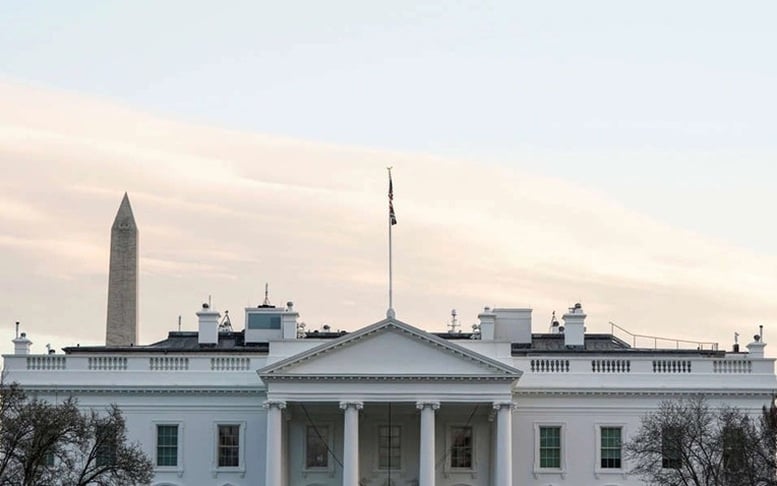
White House. Photo: Reuters.
This budget shutdown, the 15th since 1981, is considered different not only because of its length but also because of its reversal of political practice, when in the past most shutdowns were initiated by Republicans.
Since the government shutdown, the Senate has repeatedly rejected the House's temporary budget bill. Republicans hold 53 of the 100 seats in the Senate, but need at least seven Democratic votes to reach the 60-vote threshold needed to pass bills. Meanwhile, Democrats continue to hold votes to increase pressure on Republicans to extend health insurance subsidies.
Observers say little has been done to end the impasse. The House has been in recess since September 19, while President Trump has repeatedly left Washington for foreign affairs.
According to the Bipartisan Policy Center, the level of division and tension between the two parties "remains as deep as when the government shutdown first began."
If it lasts another week, the damage will be about 11 billion USD.
The Congressional Budget Office (CBO) estimates that if this situation lasts another week, the US economy could lose about $11 billion.
In a report released last week, the US Congressional Budget Office (CBO) estimated that the current government shutdown has permanently cost the economy at least $7 billion in lost output.
“Negative impacts tend to rapidly amplify themselves, spreading the damage – like a snowball rolling downhill, accelerating and growing,” said Diane Swonk, chief economist at KPMG.
Just before the government shutdown, the US labor market showed signs of weakness as businesses were in a state of "low hiring - low firing - low turnover" of personnel.
According to an analysis released last week by the U.S. Chamber of Commerce, about 65,500 small businesses that are federal contractors are at risk of late payments due to the shutdown. In October alone, about $12 billion was at risk of late payments.
The impact of the shutdown is growing by the day, with food assistance programs for the poor being suspended for the first time. Many federal employees – from airport workers to law enforcement and the military – are not being paid. Economic activity is also being severely affected by the lack of reporting from government agencies.
The Supplemental Nutrition Assistance Program (SNAP), which provides food to about 42 million Americans, ran out of money on November 1, leaving many families without an average monthly food benefit of about $180. Some Head Start early childhood education programs for low-income children have also been forced to suspend due to budget shortfalls. Airlines say more than 3.2 million passengers have been affected by flight delays or cancellations since the shutdown began.
Source: https://baochinhphu.vn/chinh-phu-my-dong-cua-cham-moc-dai-nhat-lich-su-102251105062434623.htm





![[Photo] Opening of the 14th Conference of the 13th Party Central Committee](https://vphoto.vietnam.vn/thumb/1200x675/vietnam/resource/IMAGE/2025/11/05/1762310995216_a5-bnd-5742-5255-jpg.webp)























![[Photo] Panorama of the Patriotic Emulation Congress of Nhan Dan Newspaper for the period 2025-2030](https://vphoto.vietnam.vn/thumb/1200x675/vietnam/resource/IMAGE/2025/11/04/1762252775462_ndo_br_dhthiduayeuncbaond-6125-jpg.webp)











































































Comment (0)